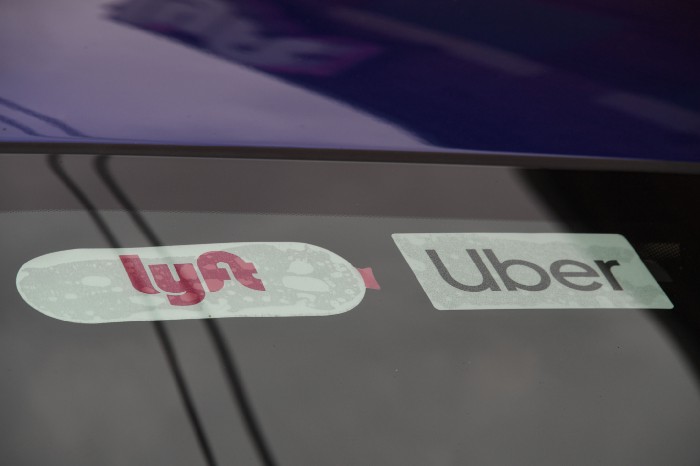Uber and Lyft will shut down their ridesharing services in California on August 20th.
Drivers of Uber and Lyft are used as pawns by ridesharing company in an attempt to operate in California. Uber and Lyft should have been more proactive all along.
Both Uber and Lyft have decided to make this a messy divorce and seem like parents who have are using their kids as pawns in the courts. The problem is that the kids have grown up and are fed up with the arguing.
The ridesharing platforms have for years not even acknowledged their riders and employees, and have been negligent in many circumstances in taking care of safe working conditions at all levels.
While riders were heading out to clubs, restaurants and over to their latest tinder date for a Netflix and chill, Uber and Lyft decided that they were too big to fail.
This is a brand new world, COVID and Shutdowns has hurt the rideshare company but, more than that it has hurt the drivers, who are facing extreme hardship as a result of the drop in riders and trips.
It seems now Uber and Lyft want to act like they are the victims, being bossed around, but none of this is new to the world of contract employees in California. Now they are at an impasse and will effectively shut down in California on August 20th.
As usual, it is the Uber and Lyft drivers who will suffer. With many drivers using the driver app as a means to help pay rent, food, and basics, the Uber shut down will affect drivers the worst.
The Uber world of arrogance
Uber, has in the past been arrogant, they have been shut down in several countries and cities, for illegally operating their services.
Uber, has implemented work practices that have been frowned on by lawmakers and congress, but, as their meteoric rise to $72 billion valuations happened in 2016, the higher levels felt that they were untouchable.
Several key members of Uber’s C-level exes left the company prior to their 2018 IPO after many allegations were made public.
Uber and Lyft too little too late
Even after a decade, neither company has managed to turn a profit. The startups sold themselves to cities as creators of good jobs and providers of new transportation options. But the cities were hoodwinked by the fantasy, too — those jobs are precarious and low-quality; many workers hover around or below minimum wage and must clock dangerously long hours to hit ride targets and surge rates. Taxi drivers, meanwhile, were pushed out of business by the venture capital-fueled companies and are despairing. And city streets are more gridlocked than ever
After the ruling, both Uber and Lyft threatened to exit the state entirely if their legal appeals were defeated. Amazingly, this was less than 48 hours after Uber’s CEO Dara Khosrowshahi proclaimed in a New York Times op-ed that “gig workers deserve better.” If that means allowing the drivers who make his service possible to have basic employee benefits, though, he’d apparently rather shut the whole thing down.
Lyft meanwhile, was more straightforward in its appeal — it said that if it had to classify its workers as employees, it simply couldn’t afford to operate.
Uber — Shares of Uber climbed 0.4% after the ride-hailing company said it does not plan to shut its California Uber Eats operations due to the court case that forced it to suspend service in the state to reshape its business model. A judge recently granted a preliminary injunction requiring the company to reclassify drivers as employees, instead of contractors.
Uber and Lyft drivers have long complained about poor pay, lack of protections, and an inability to unionize to collectively bargain with the companies. There have been stories about drivers sleeping in their cars because they can’t afford to live in the cities where they work, struggling to make ends meet, and feeling totally at the mercy of a faceless algorithm that dictates when and where they drive and for how long.
Prop 22 Uber and Lyft
California is an obvious place for the line to be drawn in the sand. It’s where Uber and Lyft were founded and where they raised billions of dollars from investors before eventually going public. But neither company has ever been profitable. They both have actually set records for the amount of money lost in the run-up to their respective IPOs. And since going public, they have continued to bleed cash.
“Prop 22 is not just securing an AB 5 carveout for gig companies,” said Carlos Ramos, a 39-year-old Lyft driver based in San Diego and member of the pro-AB5 group Gig Workers Rising. “It is also designed by gig companies to ensure that these corporations are exempted from having to observe basic labor protections for workers for generations to come.”
Uber and Lyft have money to burn on advertising, a direct line of communication to their customers, and a willingness to lose tens of millions of dollars more to make their point. Going dark in one of its biggest markets in the country to really drive the message home about what’s a stake could be a gamble worth taking. Uber lost over $16 billion in the three years running up to its IPO. Since going public, it lost another $13 billion. By comparison, Lyft lost a measly $2.6 billion in 2019, but its business is based entirely in North America, while Uber is global.
Whatever money both companies will lose closing up shop in California could be pocket change compared to getting to rewrite the laws governing work in the state


